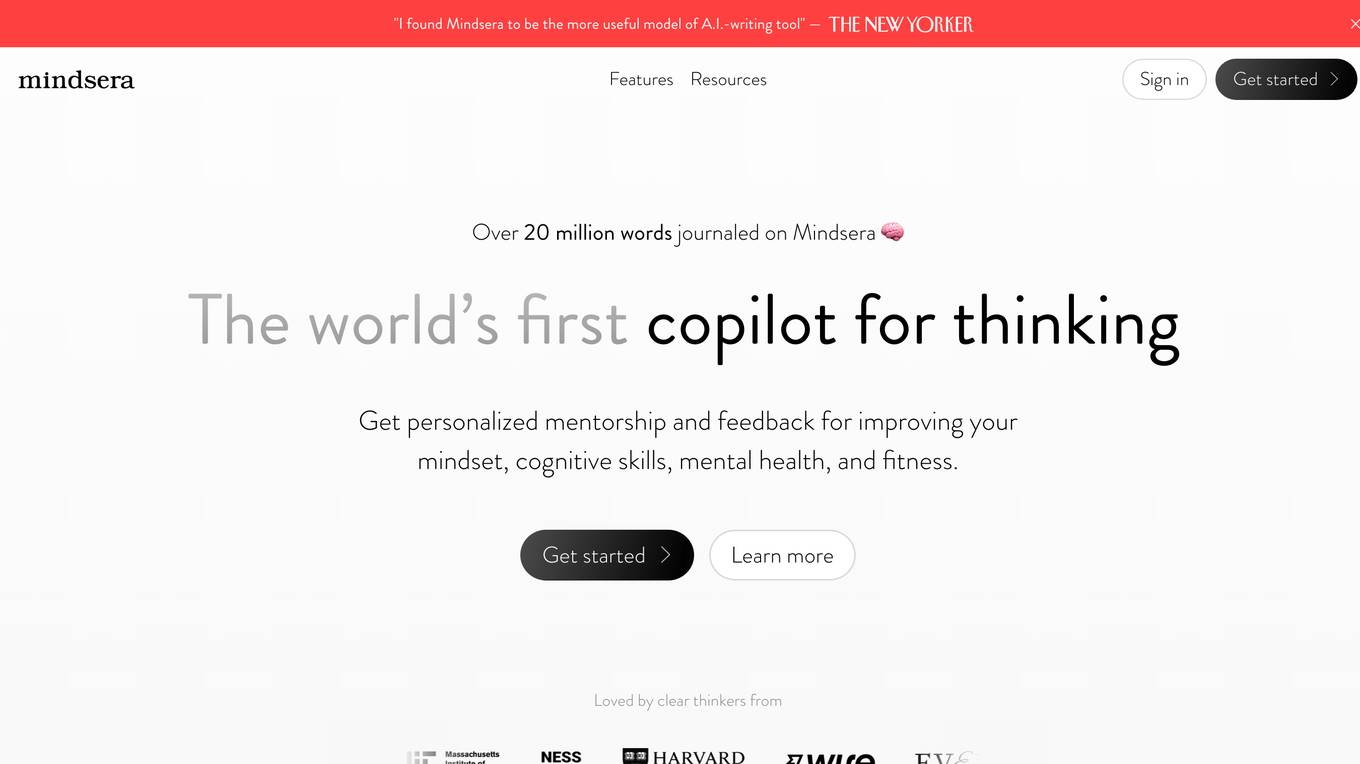AI tools for mindsera
Related Tools:

Mindsera
Mindsera is an advanced AI-powered journal application designed to enhance mental health, mindset, and cognitive skills through deep analysis, emotional analysis, chat with your journal, recurring topics overview, smart editor, generated artworks, personalized prompts, tailored improvements, weekly reviews, writing templates based on frameworks, voice mode, automatic summaries, habit tracking, real impact stories, benefits backed by studies, video walkthroughs, and articles. It offers features like emotional analysis, chat with journal, recurring topics, AI-generated artworks, personalized prompts, and tailored improvements. Mindsera provides advantages such as enhancing cognitive fitness, offering mental models and frameworks, providing personalized feedback, improving focus and clarity, and aiding in memory retention.